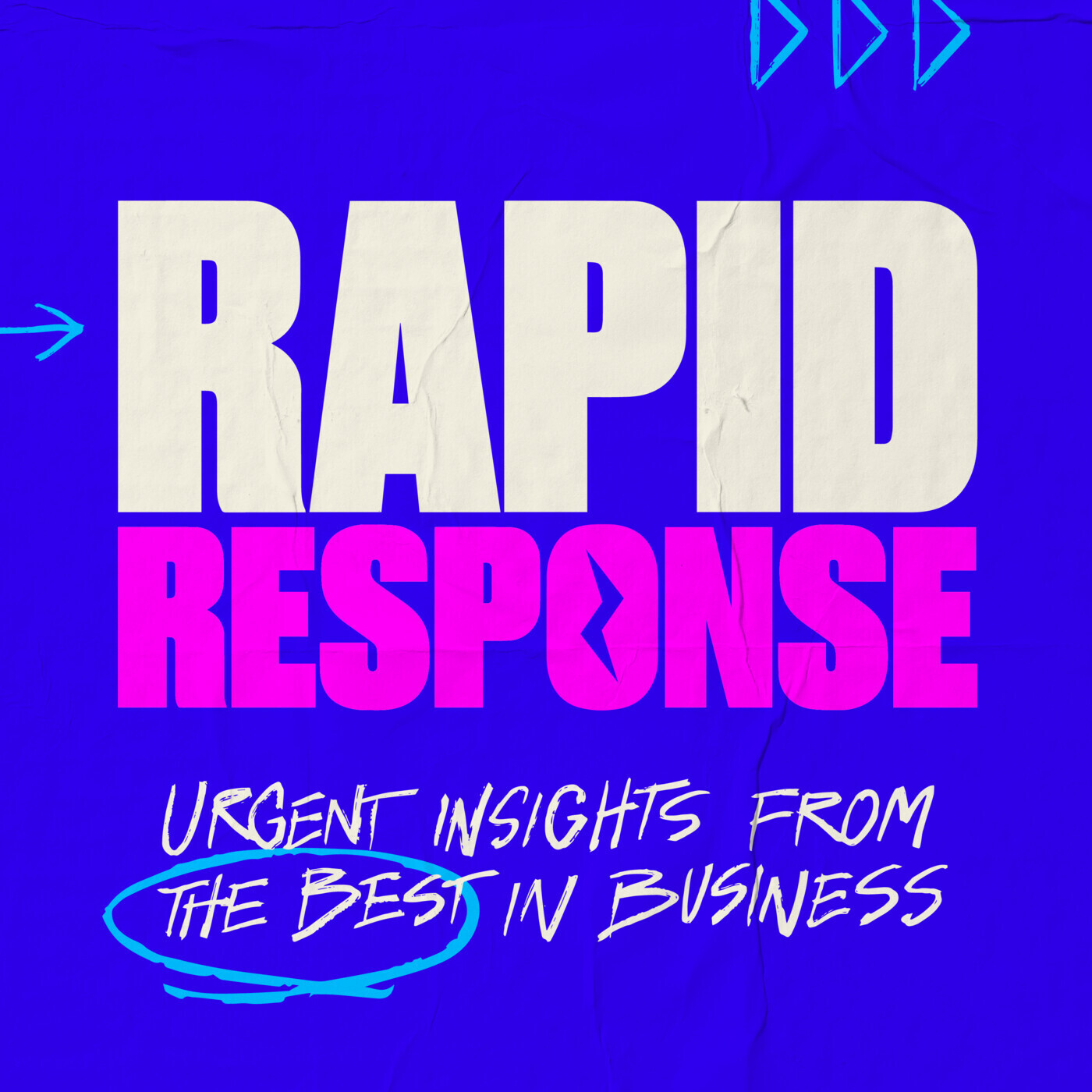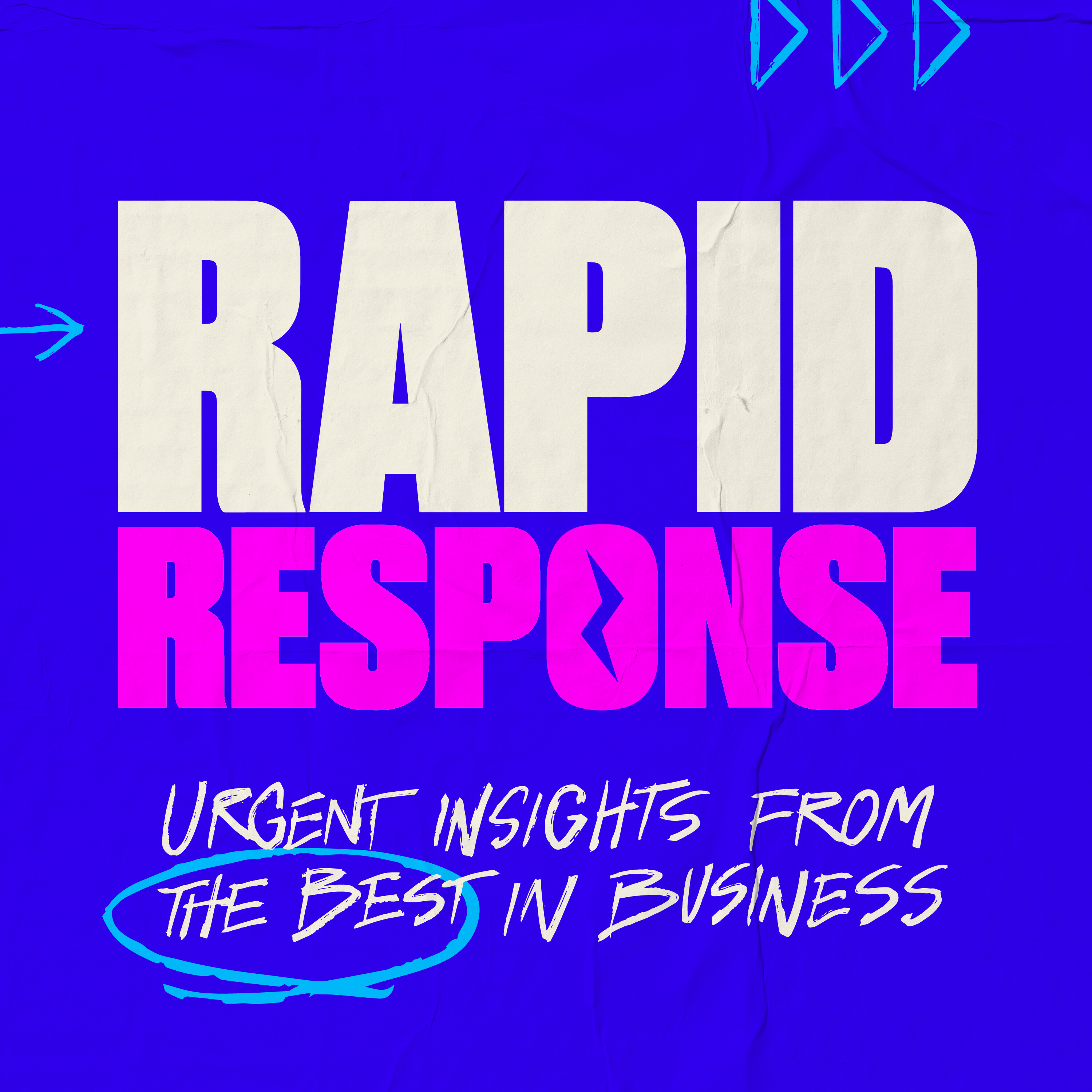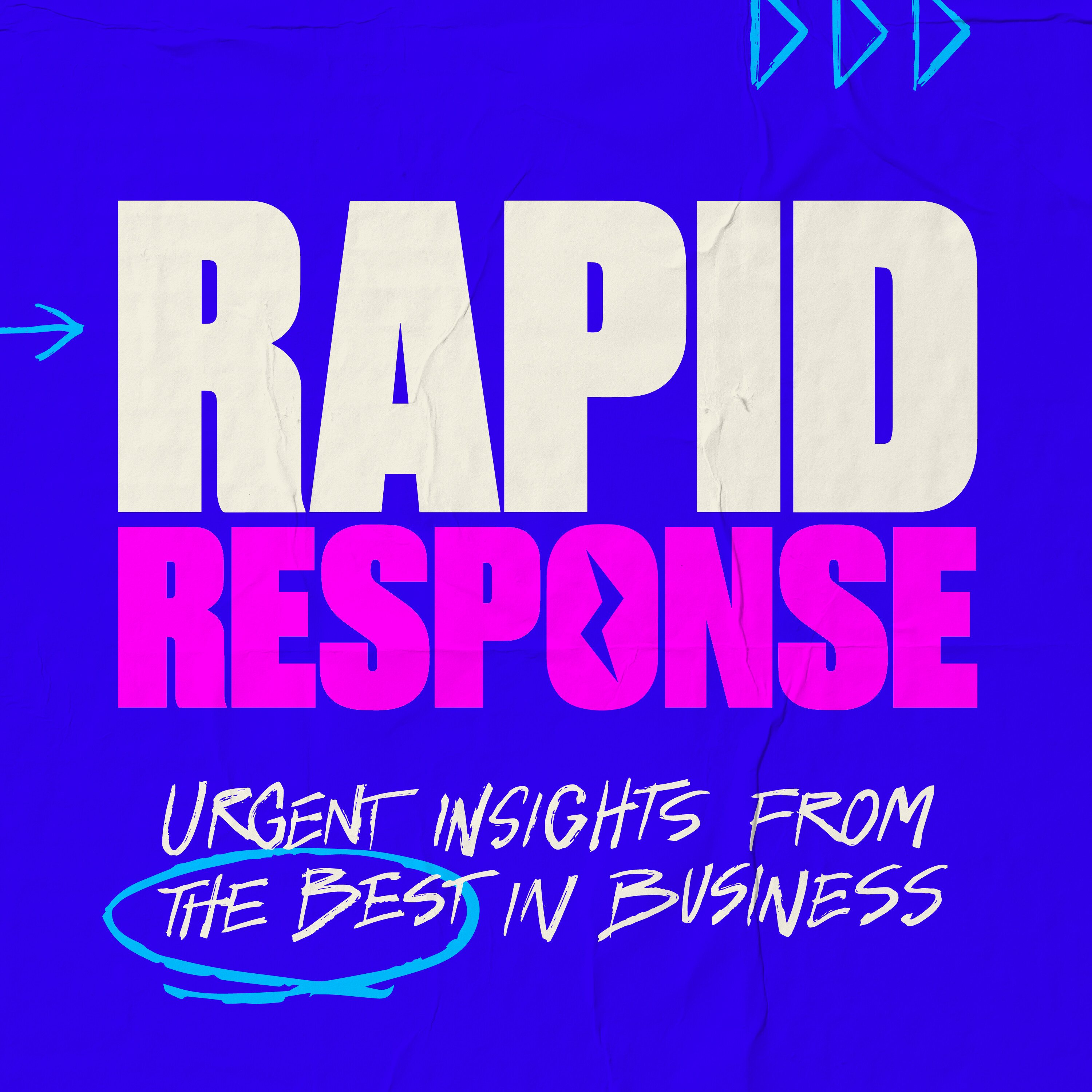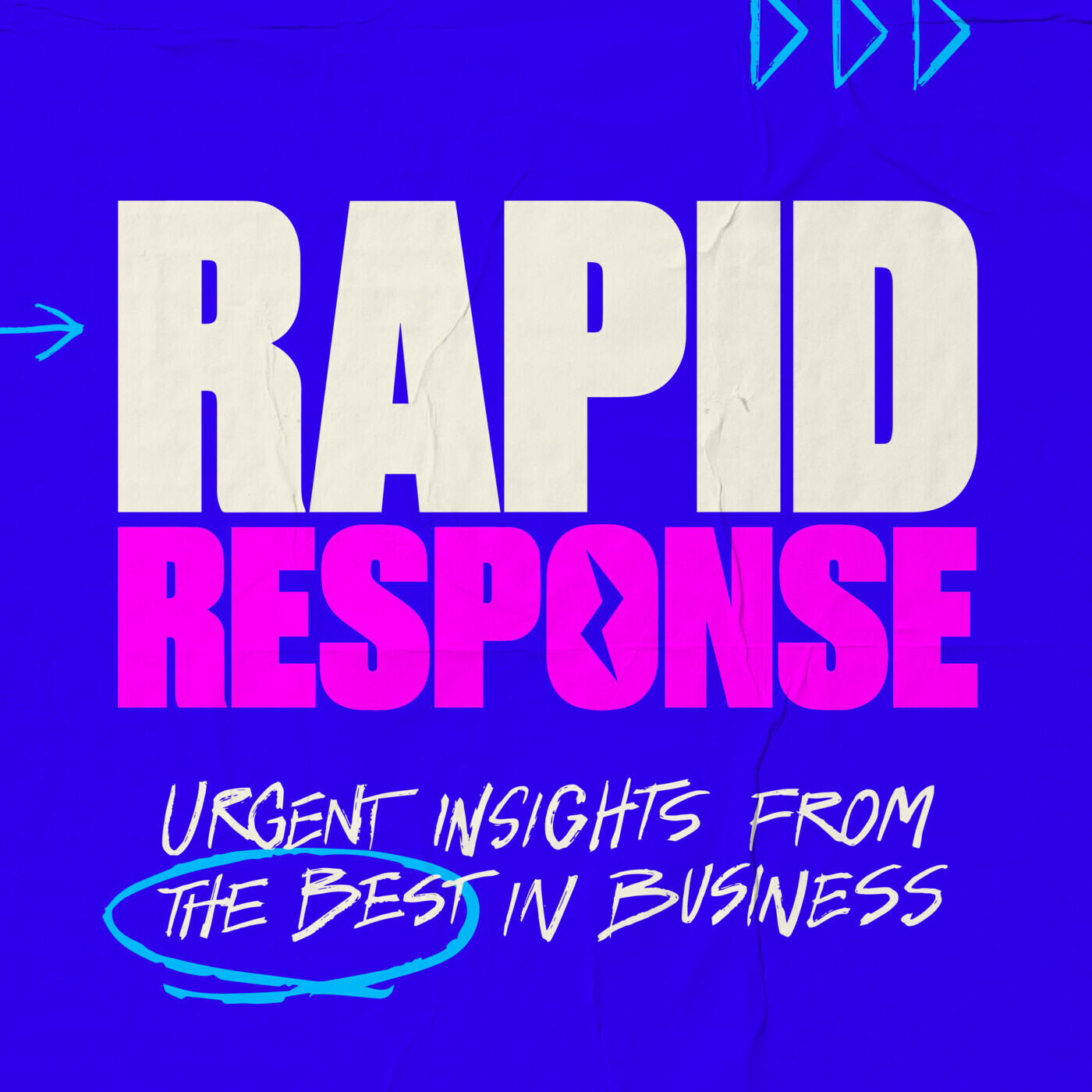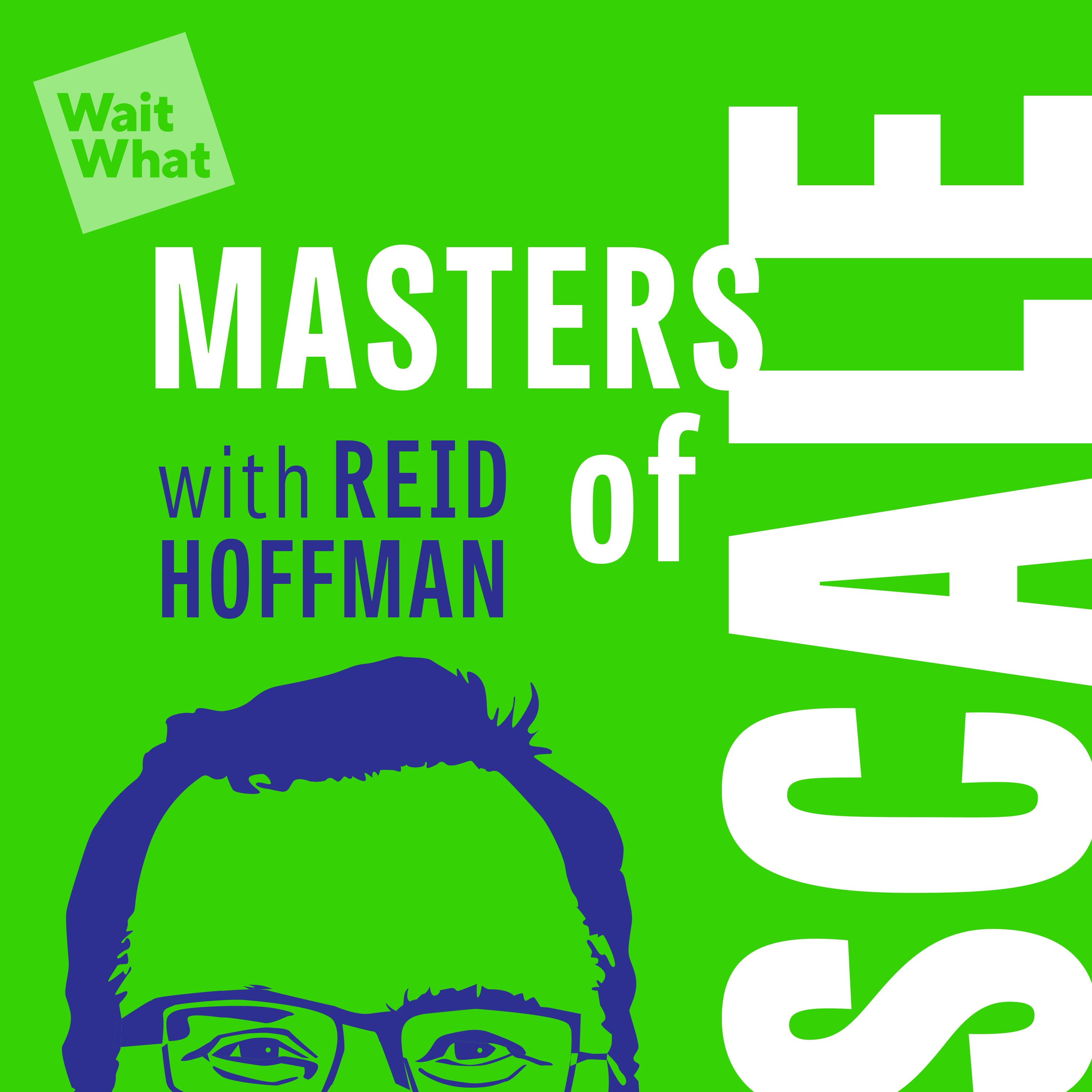
October 17, 2024 • 35min
Scott Galloway: Unfiltered lessons for business and life
Masters of Scale

Key Takeaways
- On scaling ideas and content: Focus on your core competence (e.g. storytelling) and hire talented people to build out the rest. Be unfiltered and vulnerable in your communication to resonate with audiences.
- On company culture: Imprint values early, encourage camaraderie (e.g. company trips), and over-communicate during bad times. Culture is hard for boards to assess, so retention is a key metric.
- On AI: AI won't take your job, but someone who understands AI will. Use AI as a thought partner to augment your work, not replace it. Spend time experimenting with AI tools daily.
- On antitrust and big tech: We need more aggressive antitrust action and new laws to break up overly powerful companies. Remove Section 230 protections for algorithmically elevated content.
- On voting technology: Putting voting on phones would dramatically increase turnout, but faces political resistance. Make voting more accessible through technology.
- On business leadership: Bring in experienced outside voices to give unbiased advice. Don't try to figure everything out alone or always convince others you're right.
Introduction
In this episode of Masters of Scale, host Jeff Berman interviews Scott Galloway, creator of Prof G Media, NYU business school professor, and bestselling author. Galloway shares his candid insights on a wide range of business topics, from building company culture to the impact of AI, with his trademark wit and no-filter approach. The discussion covers both Galloway's personal experiences as an entrepreneur and board member, as well as his analysis of broader business and technology trends.
Topics Discussed
Scaling Ideas and Content (03:21)
Galloway discusses his approach to scaling the distribution of his ideas and worldview:
- Focus on core competence: Galloway says his core competence is storytelling, while his "superpower" is attracting and retaining talented people.
- Hire talented people: To scale content, focus on what you're good at and hire talented people to build out the rest.
- Be unfiltered: "Your willingness to be kind of unfiltered, I think over the long term draws people in," says Galloway. He writes his newsletter as if only his sons will read it, being very open and vulnerable.
- Occupy a unique space: Galloway tries to fill the space of straight white men who don't typically talk openly about their emotions and failures.
CEOs Speaking Out on Political Issues (07:16)
Galloway advises most CEOs to avoid speaking out on political issues:
- Focus on economic security: The primary purpose of a corporation is to provide economic security for employees and shareholders.
- Avoid virtue signaling: Many tech CEOs got "over their skis" by articulating progressive values that were sometimes disingenuous.
- Be honest about motivations: "I like a CEO who says, I'm here to make money and create shareholder value that you'll share in," says Galloway.
- Exceptions exist: For companies like Ben & Jerry's where political identity is core to the brand, speaking out can make sense.
Antitrust and Big Tech (09:51)
Galloway argues for more aggressive antitrust action against big tech companies:
- Concentration of power: Companies like Microsoft, Google, and Meta have become nearly impossible to disrupt due to network effects and capital access.
- Need for breakups: Galloway cites the AT&T breakup as an example of how antitrust action can spur innovation.
- New laws needed: He advocates for new antitrust laws focused on market channel power.
- Remove Section 230: Galloway would remove Section 230 protections for all algorithmically elevated content to hold tech platforms to the same standards as traditional media.
Company Culture (15:54)
Galloway shares insights on building and assessing company culture:
- Retention as key metric: For boards, employee retention (ideally 8-12% turnover per year) is a key indicator of culture.
- Imprint values early: As CEO, Galloway would start all-hands meetings by articulating core company values.
- Encourage camaraderie: He organized company trips to foster friendships, citing research that having friends at work is the top retention factor.
- Over-communicate in bad times: "A good CEO over communicates during bad times and under communicates in good times," says Galloway.
- Remote work challenge: Creating culture without everyone in the same place is a major challenge post-COVID.
AI's Impact on Jobs and Skills (27:35)
Galloway discusses how workers should adapt to AI:
- AI as augmentation: "AI is not going to take your job. Someone who understands AI is going to take your job," says Galloway.
- Thought partner: He uses AI as a thought partner to augment his work, not replace it entirely.
- Daily experimentation: Galloway recommends spending 15-60 minutes daily experimenting with AI tools.
- Healthcare impact: He predicts AI will have the biggest impact in healthcare, giving people back time rather than reducing costs.
Voting Technology (31:42)
Galloway discusses using technology to increase voter turnout:
- Put voting on phones: This would dramatically increase turnout, but faces political resistance.
- Political implications: Increased turnout tends to benefit Democrats, so Republicans resist making voting easier.
- Accessibility is key: "If you wanted to get 80, 90% of people voting, just make it easy," says Galloway.
- Undecided voters: Galloway is skeptical of truly undecided voters this close to an election.
Advice for Struggling Family Businesses (34:26)
Galloway offers advice for a 5th generation business owner struggling to grow:
- Get outside perspective: Form a "kitchen cabinet" or board of directors with a vested interest in success but enough distance to give hard truths.
- Avoid isolation: "It's just very hard to do that in isolation, without external voices," says Galloway.
- Be open to change: Be willing to hear that you might be the problem or need to bring in outside leadership.
- Analyze objectively: Look at compensation costs, vendor relationships, customer concentration, and industry trends.
Personal Growth and Vulnerability (37:08)
Galloway reflects on influences that helped him be more open and vulnerable:
- John Irving's impact: Reading Irving's books about strange characters made Galloway feel less insecure about his own quirks and family.
- Normalizing weirdness: "Wow, I'm not as up in the head as I thought I was like, everyone's weird," Galloway realized from Irving's work.
- Comfort in one's skin: Literature helped Galloway recognize his experiences were no more or less strange than others'.
Conclusion
Scott Galloway offers a wealth of insights drawn from his experiences as an entrepreneur, board member, and keen observer of business and technology trends. His unfiltered approach and willingness to challenge conventional wisdom provide a refreshing perspective on issues ranging from corporate culture to the societal impact of big tech. While not everyone may agree with all of Galloway's views, his ability to articulate complex ideas in an engaging manner makes him a uniquely influential voice in the business world. This episode of Masters of Scale showcases the value of combining deep expertise with authentic, no-holds-barred communication to expand our understanding of the rapidly evolving business landscape.

